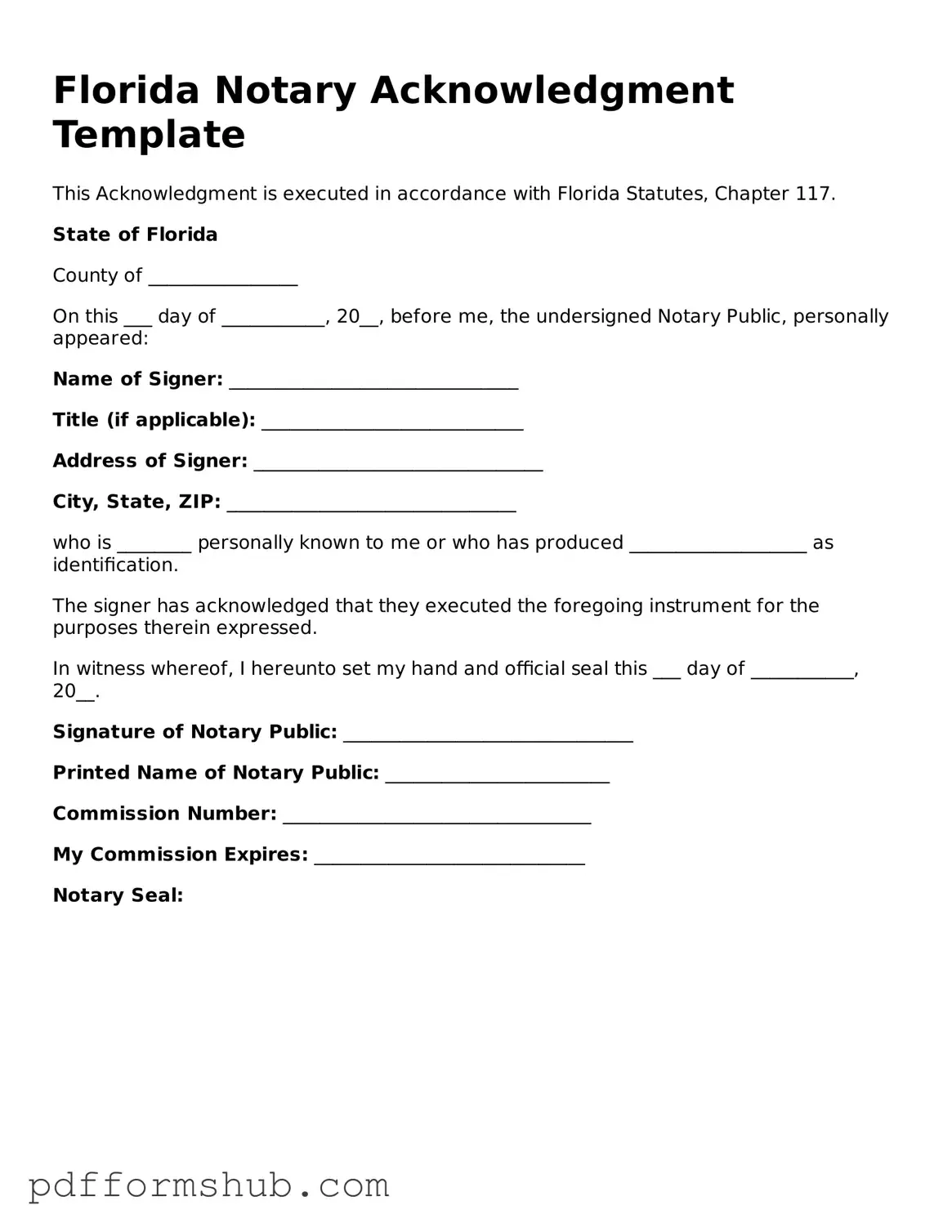Attorney-Verified Notary Acknowledgement Form for Florida State
The Florida Notary Acknowledgement form is a legal document used to confirm that a signer willingly signed a document in the presence of a notary public. This form serves to protect the integrity of the signing process and ensures that all parties are aware of their commitments. Understanding how to properly complete this form is essential for anyone engaging in legal transactions in Florida.
Ready to get started? Fill out the form by clicking the button below.
Customize Form

Attorney-Verified Notary Acknowledgement Form for Florida State
Customize Form

Customize Form
or
Free PDF Form
Short deadline? Complete this form now
Complete Notary Acknowledgement online without printing hassles.